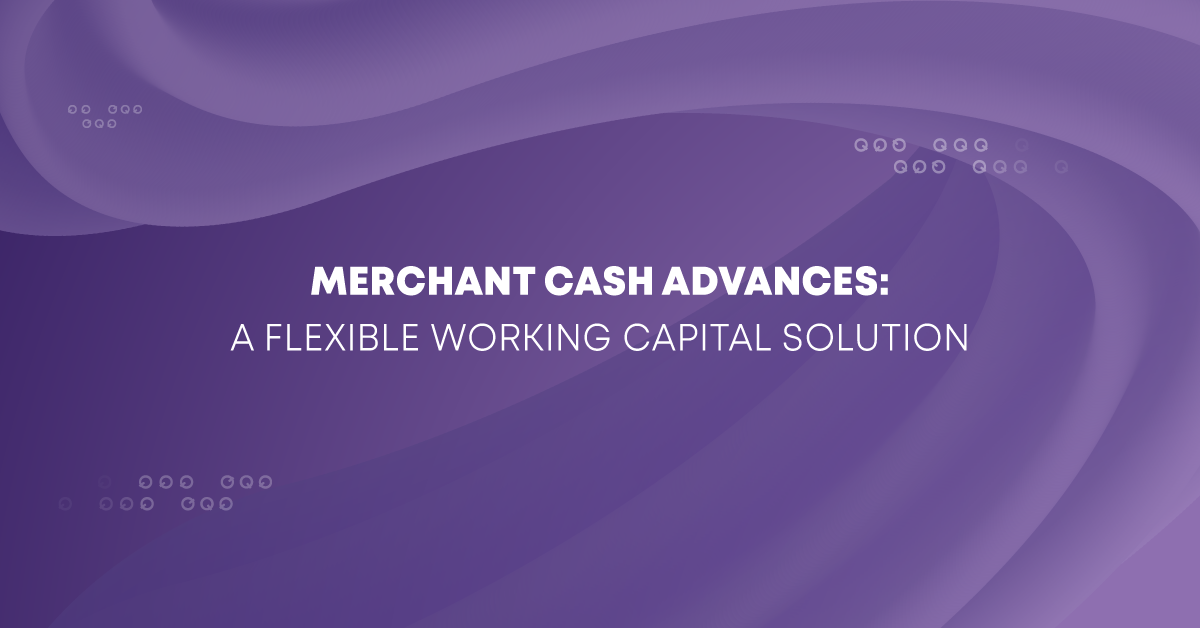Merchant Cash Advances: A Flexible Working Capital Solution
QUALCO |
This article was originally published in FCI.
[CONTENTS]
1. Introduction
Did you know that small and medium-sized enterprises (SMEs) account for 99% of all European companies? Despite their prevalence, securing funding is a significant challenge for these businesses. During the first semester of 2023, 24% of Euro area SMEs reportedly experienced severe access to finance issues as the primary driver of these hurdles.
Access to working capital can make a substantial difference, especially when unexpected expenses arise or sales decline. AMerchant Cash Advance (MCA) or Merhcant Financing offers a viable solution for these challenges, providing businesses with quick access to cash to help them maintain operations and seize growth opportunities.
2. What is a Merchant Cash Advance?
An MCA is not a traditional loan; it's an advance on your expected credit card sales. There are two primary models in the market:
Model 1: Sales-Percentage Repayment
The merchants receive a lump sum upfront, which they repay through a percentage of their daily credit card transactions. This means that when their sales slow down, their repayments decrease, too, providing financial stability. For instance, consider a retail store that enjoys high sales during the holiday season but faces reduced demand in January. An MCA can help manage expenses during quieter periods, keeping the store operational and ready for the next sales boost.
Model 2: Buy Now, Pay Later (BNPL)
Through this option, the merchant receives advances against future credit card receivables in monthly instalments. This approach provides merchants with immediate cash flow while allowing customers the flexibility to pay over time, ultimately boosting sales.
3. How Does a Merchant Cash Advance Work?
Here’s an overview of the MCA process:
- Application: Businesses submit a simple application, providing sales history and basic information.
- Approval: They receive approval and funding within a few days, granting fast access to cash.
- Repayment: Repayments are automatically deducted as a percentage of sales. Payments increase with high sales and decrease when sales dip.
A key distinction between the two models is that model 1 adjusts repayments based on sales volume, offering flexibility, while model 2 requires fixed payments regardless of the business's performance.
The first model provides more flexible repayment terms directly linked to the merchant's sales performance, while the second one, based on future credit card receivables, has fixed repayment schedules irrespective of the merchant’s cash flow.
4. The Benefits and Drawbacks of Merchant Cash Advances
Benefits
MAC offer several advantages:
- Quick Funding: Access cash in days rather than weeks.
- Flexible Repayment: Payments adjust with sales, reducing financial pressure.
- Easier Qualification: Suitable for businesses with less-than-perfect credit.
- Versatile Usage: Use the funds for inventory, payroll, marketing, or other immediate needs.
Drawbacks
While MCAs are advantageous, they come with some drawbacks:
- Higher Cost: MCAs can carry higher annual percentage rates (APRs) than traditional loans.
- Cash Flow Impact: Daily repayment deductions can affect cash flow.
- Regulatory Concerns: The MCA industry is less regulated, so businesses should carefully vet providers.
5. When to Consider a Merchant Cash Advance
An MCA can be a valuable financial tool for various situations:
Fluctuating Sales Cycles
if your business experiences seasonal or unpredictable sales, an MCA can provide the cash flow to navigate lean periods. For example, a construction company might experience increased demand during warmer months but face a slowdown during winter. An MCA can cover ongoing operational costs, such as payroll and equipment maintenance, during the off-season.
Urgent Financial Needs
An MCA offers quick access to cash for emergencies, such as unexpected repairs or urgent inventory purchases. This allows you to address immediate expenses without the lengthy approval processes of traditional loans.
Difficulty with Traditional Loans
If your company faces challenges qualifying for traditional loans due to credit history or other factors, an MCA may be a more accessible option, as it focuses more on your cash flow than credit scores.
Flexibility in Repayment
If your business can handle higher costs for flexibility, an MCA is worth considering. The repayment structure adjusts based on your sales, meaning you pay less during slower periods, which can help alleviate financial pressure.
6. Introducing QUALCO ProximaPlus
At QUALCO, we understand the challenges businesses face in securing working capital. That’s why we developed QUALCO ProximaPlus, a comprehensive software platform designed to empower businesses with the financial tools they need to succeed.
With QUALCO ProximaPlus, you get:
- Streamlined Access to MCAs: Our simplified application and funding process saves you time.
- Enhanced Analytics: Gain valuable insights into your financial performance, enabling better decision-making.
- Expert Support: Receive guidance from a dedicated team to help you navigate your financing options effectively.
By choosing QUALCO ProximaPlus, you’re not just accessing advanced technology for capital but also partnering with a team dedicated to your growth and success. Let us help you turn challenges into opportunities and drive your business forward.
Ready to tackle your most pressing cash flow issues? Learn more about QUALCO ProximaPlus


.png?width=352&name=Artboard%202%20copy%204%20(1).png)
